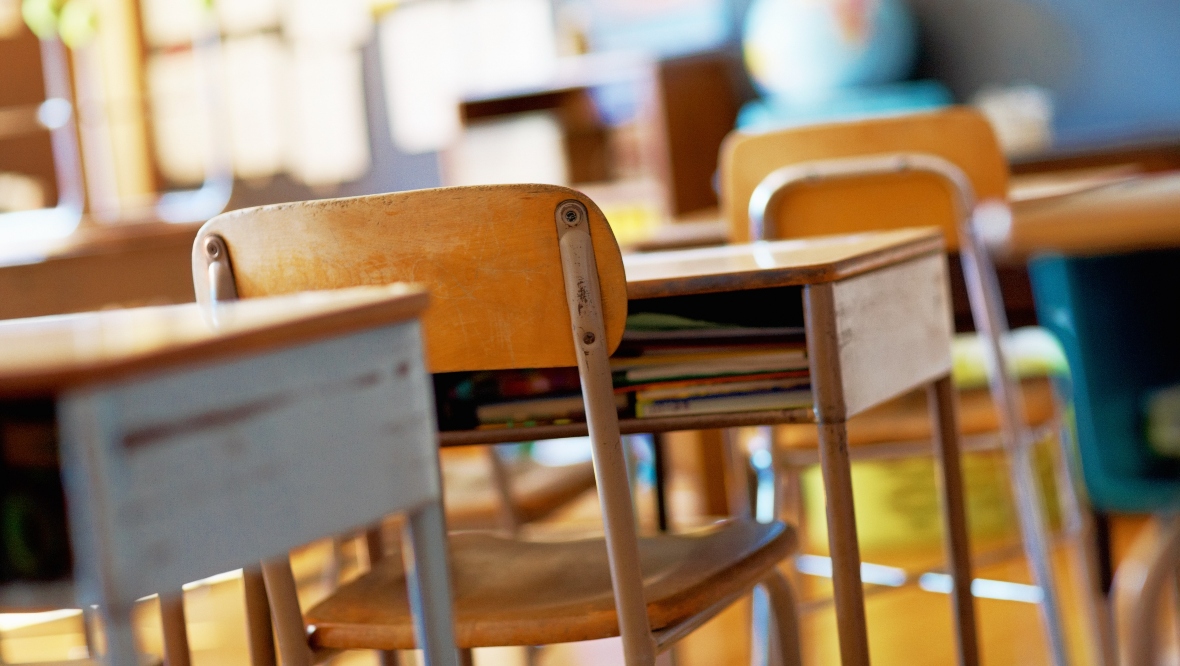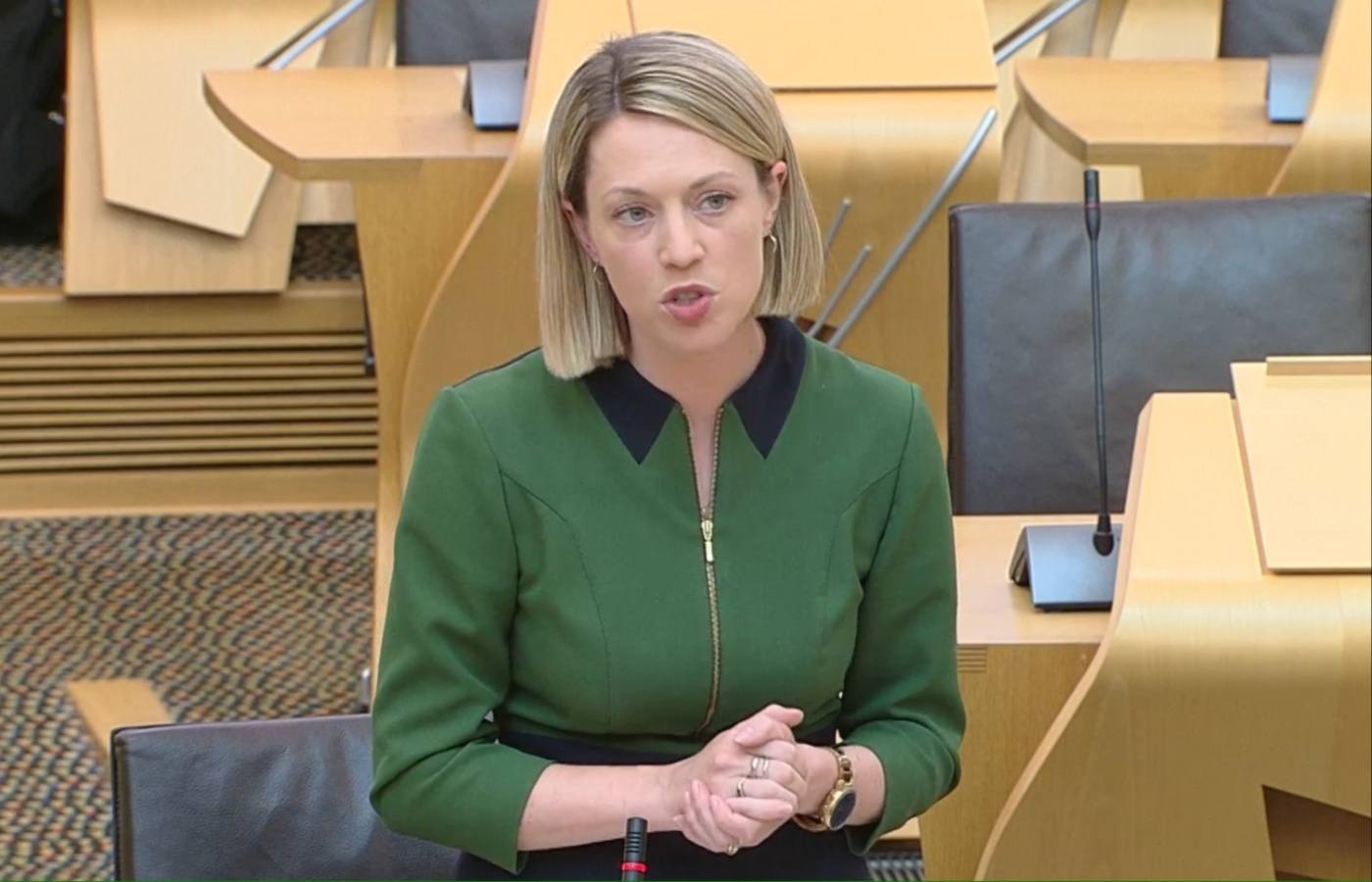Violence in Scotland’s schools is rising significantly with more pupils and teachers increasingly facing aggression, according to a new report commissioned by the Scottish Government.
Staff and pupils are dealing with rising incidents of sexist and verbal abuse and physical violence, according to the Behaviour In Scottish Schools Research (BISSR).
The survey found two-thirds (67%) of the teachers and school support workers had encountered verbal abuse between pupils within the past week.
More than half (59%) had dealt with physical aggression between students while 43% had experienced physical violence between pupils in the classroom in the last week.
The report, produced by the Scottish Centre for Social Research for the Scottish Government, said there was an increase in “classroom disengagement behaviours and low-level disruptive behaviours” since 2016.
Much of this, the report said, saw “pupils persistently infringing rules, making cheeky or impertinent remarks, engaging in general rowdiness, mucking about and deliberately excluding others”.
 iStock
iStockReports of pupils being under the influence of drugs or alcohol and using mobile phones abusively have also risen since 2016.
Staff and teachers from 525 schools across Scotland were involved in the research, with almost a quarter (24%) reporting abuse from pupils to fellow students with additional support needs within the past week.
And 18% said they had encountered sexist abuse or harassment and homophobic, biphobic or transphobic abuse towards other pupils in the last seven days.
Some 17% had dealt with racist abuse towards other pupils in the same time frame.
The study found the vast majority of primary staff (75%) thought most pupils were “generally well-behaved” – down from 90% in 2006.
For secondary schools, the number drops from 75% to 65%.
‘A rising tide of disruptive behaviour, aggression and violence in Scotland’s schools’
Andrea Bradley, general secretary of the EIS teaching union, said the data confirmed the results of a survey it published last week which “identified a significant rise in incidents of violence and aggression in our schools over the past few years”.
“The results make worrying reading for everyone involved in Scottish education, with 99% of EIS branches indicating that poor pupil behaviour, including violence and the threat of violence, is having a detrimental impact on the learning experience of pupils in our schools,” she said.
“This is against a backdrop of large class sizes, overworked teachers, rising levels of additional support needs and cuts to specialist provision.”
The Scottish Government and councils “simply cannot ignore” the BISSR and the EIS survey, she added, saying these both “paint a deeply worrying picture of a rising tide of disruptive behaviour, aggression and violence in Scotland’s schools”.
Ms Bradley added: “A lack of investment in education and support for young people, coupled with societal issues such as poverty, the influence of social media, mental ill-health and the continuing aftermath of the pandemic, have created an environment where too many young people feel alienated, isolated and distressed.
“For a growing minority of young people, this is increasingly manifesting itself in unruly, disruptive or violent behaviour, including during the school day and aimed at staff or other pupils.”
 Scottish Parliament TV
Scottish Parliament TVEducation secretary Jenny Gilruth, who has already held summits on classroom violence, said she will set out plans to Holyrood on Wednesday on how the Scottish Government will work with councils and others to try to “tackle instances of poor behaviour at the root as soon as possible”.
Gilruth said she will “engage directly with young people on this matter to ensure their voices are front and centre” as well as working with teachers and school staff “to ensure they are fully supported in responding to these challenges”.
She made the commitment as the latest report found that “whilst the majority of staff in 2023 still perceived that all or most pupils are generally well-behaved around the school and in the classroom, perceptions of this among teachers and support staff have declined” since the research began in 2006.
Gilruth said the Scottish Government had commissioned the research to “provide us with the clearest possible picture on behaviour and relationships in schools”.
She stressed it is “clear from the responses that most teachers report good behaviour amongst pupils”, insisting that “young people must not be demonised, and poor behaviour cannot be generalised”.
But she added that “young people have faced a huge amount of disruption in recent years due to the Covid-19 pandemic which has been compounded by the current cost-of-living crisis”.
Adding that this is “not unique to Scotland”, she said she will set out more details about what the Government plans to Holyrood on Wednesday.
Follow STV News on WhatsApp
Scan the QR code on your mobile device for all the latest news from around the country




























